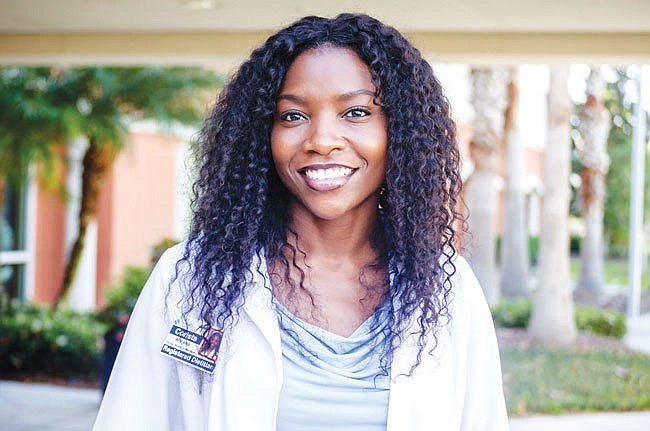- February 7, 2026
-
-
Loading

Loading

The moment has come. You’ve decided to make a lifestyle change. You sit at your computer, scrolling through pages of search results showing dozens of diets and healthy lifestyles. There’s paleo, gluten-free, Mediterranean. But how do you choose? Is one better? Worse?
Don’t worry.
Step away from the keyboard and let Corista Williams, clinical nutrition manager at Lakewood Ranch Medical Center, help solve your diet dilemma.
Gluten-free
The first step to going gluten-free is knowing what gluten is. Gluten is a protein found in bread that helps it keep its shape. It’s the glue that keeps your bread together.
“It’s become very popular in the last several years,” Williams said. “Initially the gluten-free diet was for people with celiac disease. Now it’s become popular as people feel that it can lower their body’s inflammation.”
Going gluten-free can be an adjustment, depending how much bread or pasta you typically incorporate into your diet.
“Proper planning (is important) if you are on a gluten-free diet,” Williams said. “They need to know where they can find those items on the menu.”
Williams said it’s important to keep in mind that going gluten-free doesn’t mean you are automatically going to lose weight. Just like any diet, it’s important maintain a balanced diet and limit your overall calorie consumption.
“If you are uneducated, and you are trying follow any special die,t you may not reap all the benefits of that diet,” Williams said.
Mediterranean diet
Yes, you can have wine with this diet, but before you run for the wine aisle, remember that moderation is key in any healthy lifestyle.
Women get one glass of wine a day. Men get two.
“Six ounces, one glass,” Williams said. “That’s it.”
Besides that, Williams said she is a big fan of the Mediterranean diet. It emphasizes healthy fats, like olive oil.
“Is actually known to be a very healthy diet because they eat a lot of lean meats. It's very high in fruits, vegetables and legumes,” Williams said. “What they found is in that diet they actually have less of risk cardiovascular disease. They really limit the amount of processed foods.”
Paleo diet
The paleo diet _ it's short for Paleolithic diet — emphasizes eating like our ancient ancestors before the agriculture revolution brought grains into our diet. For that reason, paleo-eaters avoid dairy and gluten, and rely heavily on meat, fruit and vegetables.
It’s not just for your CrossfFit friend, but before you start eating like a caveman, it’s important to remember this diet isn’t a meat free-for-all.
“That’s the biggest downfall. People think, 'Oh all the bacon you want,'” Williams said.
However, eating like our ancestors does have it’s perks.
“Paleo does eliminate a lot of processed foods,” Williams said. “You’re going to get more fresh fruits and vegetables.”
But just like any other diet, moderation is the key.
“A lot of times people want to do paleo, and they think they can just eat all the meat in the world. It’s just too much,” Williams said. “So they increase their risk of cardiovascular disease.”
General diet do’s
Regardless of which lifestyle fits your goals, there are some simple health truths.
“If you’re picking a diet, you really want to stay away from diets that eliminate food groups,” Williams said. “It should be something you can follow for long periods and get results, as opposed to getting a quick fix.”
She said staying hydrated and avoiding sugary drinks is an excellent first step.
But, above all, moderation is the key to living a healthy lifestyle.
Research, she said, has shown that a more plant-based diet is the way to go, as is eliminating processed foods.
“If you are going to have meat, have that in moderation,” Williams said. “You can get a lot of your protein from your vegetables. Just don’t eat anything in excess.”